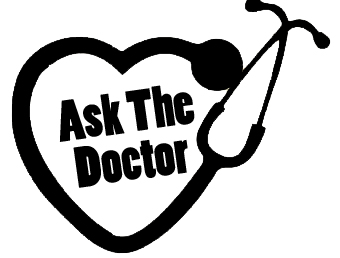
Hypothyroidism is more prevalent in women than men. The underlying causes may be genetic, environmental, immune-related or nutritional. Sometimes exposure to cyanogenic compounds may have an impact metabolism iodine. Extreme use of pesticides, contaminated drinking water, endocrine disruptors, and industrial pollutants may be cause for hypothyroidism.
Our Licensed naturopathic doctors are able to treat hypothyroidism with their expertise and knowledge. Their intense knowledge and experience in therapeutic nutrition, naturopathic treatment and botanical medicine.
What is Hypothyroidism?
The butterfly shaped thyroid gland is an endocrine gland located in lower part of the throat. The thyroid glands ensure proper working of all organs in the body. It produces hormones and secretes them in to the blood. There on they reach the tissues in the body. The hormones help in:
- Regulating body temperature
- Maintaining energy
- Metabolize
- Helps in proper functioning of muscles, heart, brain, and other organs as they should
How Do I know if I suffer from Hypothyroidism?
“About 60% of Patients I treat for hypothyroidism are mostly unaware of their ailment,” Dr. Mathur at Sanjeevani Kaya Shodhan Sansthan (SKSS), Gohana, Haryana, expresses his concerns. He further emphasizes, “The symptoms of hypothyroidism are similar to that of other diseases so the detection goes missed.”
When the body does not produce enough thyroid hormone, the patient may experience:
- Weight Gain
- Depression
- Fatigue
- Hair thinning
- Dry skin
Dr. Vashisth says that if not checked, Hypothyroidism may cause more serious symptoms as:
- Difficulty in Sleeping
- Women experience changes in menstruation
- Gastrointestinal symptoms
The prevalence of hypothyroidism in India is 11%, compared with only 2% in the UK and 4·6% in the USA. This is possibly linked to long-standing iodine deficiency in the country, which has only been partly corrected over the past 20 years, (https://www.downtoearth.org.in/news/health/1-in-10-indians-have-hypothyroidism-61693).
Diagnosing Hypothyroidism:
The doctors advise to bring your medical reports with you so
that can better assist your problems. Hypothyroidism is diagnosed with blood
test. Sanjeevani Kaya Shodhan Sansthan provides many Lab Test services from
known Labs.
In a blood test the T4 thyroxine, T3 free triiodothyronine are checked. The pituitary gland produces TSH- Thyroptonin, a thyroid Stimulating hormone. In a blood test, all three T3 and T4 and TSH are checked.
A case scenario may be such that T3 and T4 may be diagonozed normal but TSH level may be high. A blood test measures anti-TPO, anti-thyroid peroxidase; thyroid antibodies; anti-TG, anti-thyroglobulin. These tests are used to confirm the absence or presence of thyroid disease that may be causing hypothyroidism.
What are the underlying causes of Hypothyroidism?
Our naturopathic doctors will treat hypothyroidism from the root of the problem. Mainly, there are two types hypothyroidism with contributing factors.
1. Autoimmune thyroid Disease (Hashimoto’s): The autoimmune or Hashimoto’s is the most common cause. This is caused by patient’s immune system and is the inflammation of thyroid.
It is about 7 times more common in women than men. Risen levels of anti-TPO antibodies are found in the patients. About 5% of adults are recorded with and is more common in women. Almost 15% of women are detected with higher anti-TPO levels.
The autoimmune thyroid disease is more prevalent in individuals suffering from other autoimmune diseases as-
- Type 1 diabetes
- Celiac disease
- Rheumatoid arthritis
2. Central or pituitary hypothyroidism
The main cause is when enough hormones are not being made by thyroid. The underlying reason is influences of environment and nutrition.
- Gastrointestinal system inflammation
- High levels of cortisol due to prolonged stress or oral steroid use
- Elevated estrogen
- Vitamin and mineral deficiencies or imbalances
Other causes of hypothyroidism may be:
- Surgery on the thyroid gland for removal of a goiter or nodule
- Hyperactive thyroid
- Radioactive iodine treatment used in treatment of a thyroid nodule
- Throat cancer
- cancer of nearby sites
How can Naturopathic treatment help treat Hypothyroidism?
REGULAR TREATMENTS FOR PATIENTS
Usually the patients take conventional thyroid supplements as:
- Synthetic levothyroxine for T4
- Liothyronine T3
- Or natural desiccated thyroid T4 and T3
These treatment may be effective on some patients but not some others suffering from Hashimoto’s. They need more than supplemented hormones. Some patients don’t absorb the hormones well. And yet in some the yo-yo effect takes place before the correct dosage is understood.
How can Naturopathy treatment help?
The naturopathic doctors very rarely use medication as a standalone treatment. At Sanjeevani we advise the patients not to stop their pharmaceutical medication. The doctors combine the ongoing pharmaceutical supplementation with their individualized prescribed diet, individualized botanical medicine, and supplementation.
The doctors at Sanjeevani work on the autoimmune disease, which is the main cause of hypothyroidism. They make efforts to control the inflammation and try to eliminate the autoimmune activators. Their main goal lies to reduce the thyroid anti-bodies.
Common Natural Treatments:
Although our doctors individualize the treatments, some common treatments include:
- Diet to tackle the microbiome imbalance
The microbiome imbalance is the common underlying factor in autoimmune conditions including Hashimoto’s. So the right diet is advised to tackle the imbalance and inflammation in the gut.
The doctors try to level the microbiome imbalance with nutritional treatments as cultured foods, probiotics, and diets that are lower in carbohydrates, sugar and starch. The diet balances immunity and decreases inflammation.
The doctors might want the patients to be tested for the celiac disease. If the results are positive, then they might recommend gluten elimination from the diet and give alternative food plan.
Doctors may change your food plan as in Naturopathy food is used as medicine. Natural foods are enriched in vitamins, mineral, proteins, fats and carbohydrates. Doctors make an individualized food-plan to treat your ailment. The naturopathy therapy treatments detox and condition your body to become receptive to medicinal value in food. If your food-intake mostly consists of unbalanced diet or junk food, then you lessen the power of your body to absorb food the right way.
The doctors are likely to give diets that are rich in B-12, Selenium and Zinc that would help hypothyroidism.
Mostly patients do take vitamin B-12 which is important for production of thyroid. It boosts the energy production and helps overcome fatigue.
Zinc helps thyroid to function better and improve hormone levels. it has a positive effect even on overweight women suffering from thyroid problem.
Patients also take Selenium. Selenium maintains thyroid production and metabolism. It also reduces the thyroid anti-bodies.
Supplementary Botanical Herbs
Some herbs that help in thyroid function are:
- Gum Guggal
- Ashwagandha
Gum Guggal: The GumGuggal is universally used in treatment of all types of hypothyroidism. It helps to change the inactive T4 to the more active T3. The herbal treatment must be prescribed by the doctor to avoid sideaffects.
Ashwagandha: is an adoptogen and helps in thyroid functioning. Adaptogens are herbs thathelp regulate body processes and balance out body dysfunctions. Be cautioned not to medicate yourself especially if you are suffering from autoimmune thyroid disease. Botanical herbs may stimulate your immune system response.
Regulating thyroid treatment is not an easy task and needs a full program to condition and make your body receptive towards changes and healing. The naturopathic doctors are experienced to design supportive program to detect the underlying causes and heal the body so it may function normally.

Sanjeevani Kaya Shodhan Sansthan Goes online for bookings!
You can now make online payments to make reservations
and book your treatment-stay
at Sanjeevani Kaya Shodhan Sansthan

If you have any concerns or queries regarding diseases treated or therapies or your special situation, write your post at Ask The Doctor section
 +91-8607000895
+91-8607000895  Whatsapp
Whatsapp


